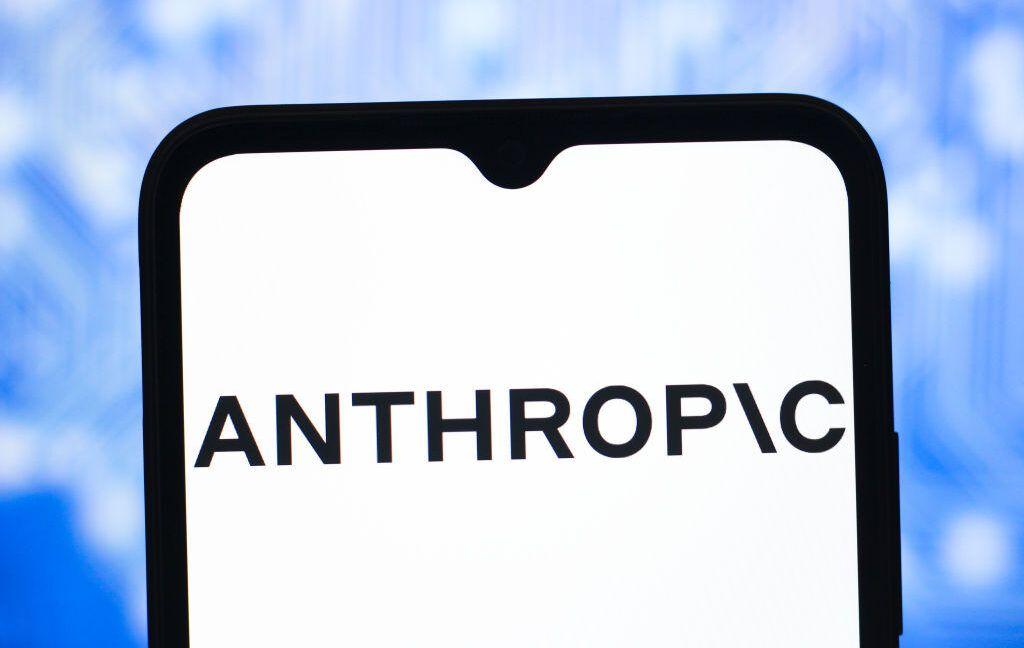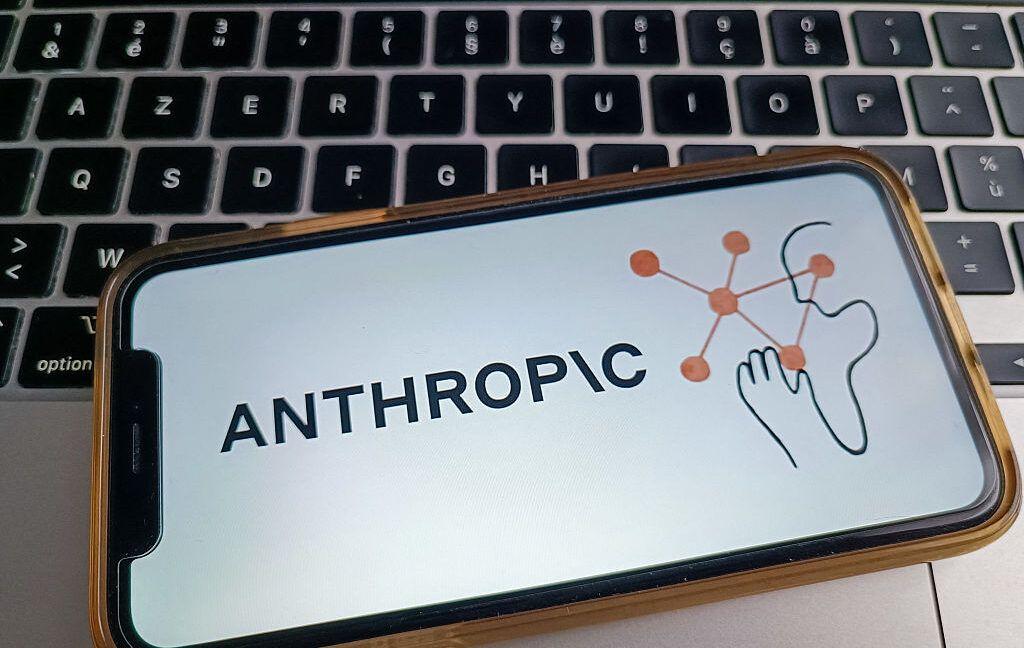Anthropic Faces Potential 'Business-Ending' Damages in Copyright Lawsuit Over Pirated Books Used for AI Training
2 Sources
2 Sources
[1]
A copyright lawsuit over pirated books could result in 'business-ending' damages for Anthropic
Leading AI lab Anthropic is reckoning with a legal battle that could jeopardize the company's future. The class-action lawsuit against the company centers on Anthropic's use of potentially pirated books to train its large language model, Claude, and could leave the company on the hook for billions of dollars worth of damages. According to court filings, the company downloaded millions of copyrighted works from shadow libraries like LibGen and PiLiMi to train AI models and build a "central library" of digital books that would include "all the books in the world" and preserve them indefinitely. The Plaintiffs -- which includes authors Andrea Bartz, Charles Graeber and Kirk Wallace Johnson -- allege that millions of these works were obtained from piracy websites in direct violation of copyright law. The Judge presiding over the case, Judge William Alsup, has recently ruled that training AI models on lawfully-acquired books qualifies as "fair use," and that AI companies do not need a license from copyright holders to conduct such training, a decision that was viewed as a major win for the AI sector. However, the still unresolved issue is how Anthropic obtained and stored the copyrighted books. The judge drew a distinction when it came to the use of pirated materials, advising Anthropic that a separate trial "on the pirated copies" and "the resulting damages" would be forthcoming. "The problem is that a lot of these AI companies have scraped piracy sites like LibGen...where books have been uploaded in electronic form, usually PDF, without the permission of the authors, without payment," Luke McDonagh, an associate Professor of Law at LSE, told Fortune. "The judge seems to be suggesting that if you had bought a million books from Amazon in digital form, then you could do the training, and that would be legal, but it's the it's the downloading from the pirate website that is the problem, because there's two things, there's that acquiring of the copy, and then the use of the copy," he added. Santa Clara Law professor Ed Lee said in a blog post that the ruling could leave Anthropic facing "at least the potential for business-ending liability." The plaintiffs are unlikely to prove direct financial harm, such as lost sales, and are likely to instead rely on statutory damages, which can range from $750 to $150,000 per work. That range depends heavily on whether the infringement is deemed willful. If the court rules that Anthropic knowingly violated copyright law, the resulting fines could be enormous, potentially in the billions, even at the lower end of the scale. The number of works included in the class action and whether the jury finds willful infringement is still a question mark, but potential damages could range from hundreds of millions to tens of billions of dollars. Even at the low end, Lee argues that damages in the range of $1 billion to $3 billion are possible if just 100,000 works are included in the class-action. That figure rivals the largest copyright damages awards on record and could far exceed Anthropic's current $4 billion in annual revenue. Lee estimated that the company could be on the hook for up to $1.05 trillion if a jury decides that the company willfully pirated 6 million copyrighted books. Anthropic did not immediately respond to a request for comment from Fortune. However, the company has previously said it "respectfully disagrees" with the court's decision and is exploring its options, which might include appealing Alsup's ruling or offering to settle the case. A trial, which is the first case of a certified class action against an AI company over the use of copyrighted materials, is currently scheduled for December 1. The verdict could determine the outcomes of similar cases, such as a high-profile ongoing battle between OpenAI and dozens of authors and publishers. While the courts do appear to be leaning towards allowing fair use arguments from AI companies, there's a legal divergence regarding the acquisition of copyrighted works from shadow sites. In a recent copyright case against Meta, Judge Vince Chhabria argued that the transformative purpose of the AI use effectively legitimizes the earlier unauthorized downloading. The ruling, according to McDonagh, suggested that the positive, transformative use of the works could "correct" the initial problematic acquisition, whereas Judge Alsup viewed the downloading of books from unauthorized shadow libraries as "inherently wrong," suggesting that even if the AI training use might be considered fair use, the initial acquisition of works was illegitimate and would need compensation. The two judges also diverged on whether AI-generated outputs could be deemed to compete with the original copyrighted works in their training data. Judge Chhabria acknowledged that if such competition was proved it might undercut a fair use defense but found that, in the Meta case, the plaintiffs had failed to provide sufficient evidence of market harm, whereas Judge Alsup concluded that generative AI outputs do not compete with the original works at all. The legal question around AI companies and copyright work has also become increasingly political, with the current administration pushing to allow AI companies to use copyrighted materials for training under broad fair use protections, in an effort to maintain U.S. leadership in artificial intelligence. McDonagh said the case against Anthropic was unlikely to leave the company bankrupt, as the Trump administration would be unlikely to allow a ruling that would essentially destroy an AI company. Judges are also generally adverse to issuing rulings that could lead to bankruptcy unless there is a strong legal basis and the action is deemed necessary. Courts have been known to consider the potential impact on the company and its stakeholders when issuing rulings that could result in liquidation. "The US Supreme Court, at the moment, seems quite friendly to the Trump agenda, so it's quite likely that in the end, this wouldn't have been the kind of doomsday scenario of the copyright ruling bankrupting anthropic," he said. "Anthropic is now valued, depending on different estimates, between $60 and $100 billion. So paying a couple of billion to the authors would by no means bankrupt the organization."
[2]
Anthropic faces trial over pirated AI training books
A class-action lawsuit against Anthropic, alleging the company used pirated books from shadow libraries like LibGen and PiLiMi to train its AI models, could result in substantial copyright damages, with a federal judge ruling on separate trials for acquisition and training, reports Fortune. Anthropic, a leading artificial intelligence laboratory, faces a legal challenge that could significantly impact its financial standing. The class-action lawsuit centers on the company's alleged utilization of pirated books to train its large language model, Claude. This legal action could lead to billions of dollars in damages. Court filings indicate that Anthropic downloaded millions of copyrighted works from shadow libraries such as LibGen and PiLiMi. These downloads were purportedly used to train AI models and to construct a "central library" of digital books, intended to encompass "all the books in the world" and preserve them indefinitely. The plaintiffs, including authors Andrea Bartz, Charles Graeber, and Kirk Wallace Johnson, contend that millions of these works were obtained from piracy websites, constituting direct violations of copyright law. Judge William Alsup, presiding over the case, recently ruled that training AI models on lawfully acquired books qualifies as "fair use." This decision means AI companies do not require a license from copyright holders for such training, a development widely regarded as a significant victory for the AI sector. However, the unresolved aspect of the case pertains to Anthropic's methods of acquiring and storing the copyrighted books. Judge Alsup distinguished between the use of lawfully acquired materials and pirated content, informing Anthropic that a separate trial addressing "the pirated copies" and "the resulting damages" would proceed. Luke McDonagh, an associate professor of law at LSE, commented on the distinction between lawfully obtained and pirated materials. He stated, "The problem is that a lot of these AI companies have scraped piracy sites like LibGen... where books have been uploaded in electronic form, usually PDF, without the permission of the authors, without payment." McDonagh elaborated that the judge's perspective suggests that if Anthropic had purchased millions of digital books from a legitimate source like Amazon, the training based on those books would be legal. He emphasized that the act of downloading from pirate websites constitutes the core problem, as it involves both the acquisition of an unauthorized copy and its subsequent use. Ed Lee, a law professor at Santa Clara, suggested in a blog post that Judge Alsup's ruling could expose Anthropic to "at least the potential for business-ending liability." The plaintiffs are unlikely to demonstrate direct financial harm, such as lost sales, and are therefore expected to pursue statutory damages. Statutory damages range from $750 to $150,000 per work. The specific amount depends heavily on whether the infringement is determined to be willful. If the court concludes that Anthropic knowingly violated copyright law, the resulting fines could be substantial, potentially reaching billions of dollars even at the lower end of the statutory damage scale. Anthropic now wants you to use its AI when you apply for a job The precise number of works included in the class action and whether a jury finds willful infringement remain undetermined. However, potential damages could range from hundreds of millions to tens of billions of dollars. Lee posits that even at the lower end, damages between $1 billion and $3 billion are plausible if only 100,000 works are included in the class action. This figure would rival the largest copyright damage awards on record and could significantly exceed Anthropic's current annual revenue of $4 billion. Lee further estimated that if a jury determines Anthropic willfully pirated 6 million copyrighted books, the company could face liability of up to $1.05 trillion. Anthropic has not provided an immediate comment in response to inquiries. However, the company has previously stated its "respectful disagreement" with the court's decision. Anthropic is exploring its options, which include potentially appealing Judge Alsup's ruling or seeking to settle the case. The trial, notable as the first certified class action against an AI company concerning the use of copyrighted materials, is scheduled for December 1. The outcome of this verdict could influence similar ongoing legal disputes, such as the high-profile case involving OpenAI and a number of authors and publishers. While judicial opinions appear to favor fair use arguments for AI companies, a legal divergence exists regarding the acquisition of copyrighted works from unauthorized shadow sites. In a recent copyright case against Meta, Judge Vince Chhabria posited that the transformative purpose of AI use effectively legitimizes earlier unauthorized downloading. McDonagh explained that Judge Chhabria's ruling suggested that the positive, transformative application of the works could "correct" the initial problematic acquisition. In contrast, Judge Alsup views the downloading of books from unauthorized shadow libraries as "inherently wrong." He implies that even if the AI training use might be considered fair use, the initial acquisition of the works was illegitimate and would necessitate compensation. A further point of divergence between the two judges concerns whether AI-generated outputs could be considered competitive with the original copyrighted works used in their training data. Judge Chhabria acknowledged that if such competition were proven, it might undermine a fair use defense. However, in the Meta case, he determined that the plaintiffs had failed to provide sufficient evidence of market harm. Conversely, Judge Alsup concluded that generative AI outputs do not compete with the original works at all. The legal landscape surrounding AI companies and copyrighted works has also become increasingly politicized. The current administration advocates for broad fair use protections for AI companies using copyrighted materials for training. This stance is part of an effort to maintain U.S. leadership in artificial intelligence development. McDonagh expressed the view that the lawsuit against Anthropic is unlikely to result in the company's bankruptcy. He suggested that the U.S. government would be unlikely to permit a ruling that would effectively dismantle an AI company. Additionally, he noted that judges generally demonstrate an aversion to issuing rulings that could lead to bankruptcy, unless a strong legal basis necessitates such an outcome. Courts have been observed to consider the potential impact on a company and its stakeholders when issuing rulings that could result in liquidation. McDonagh stated, "The U.S. Supreme Court, at the moment, seems quite friendly to the Trump agenda, so it's quite likely that in the end, this wouldn't have been the kind of doomsday scenario of the copyright ruling bankrupting Anthropic." He added, "Anthropic is now valued, depending on different estimates, between $60 and $100 billion. So paying a couple of billion to the authors would by no means bankrupt the organization."
Share
Share
Copy Link
Anthropic is embroiled in a class-action lawsuit alleging the use of pirated books to train its AI model Claude, potentially facing billions in damages. The case highlights the legal complexities surrounding AI training data and copyright infringement.
Anthropic's Legal Battle Over AI Training Data

Source: Dataconomy
Anthropic, a leading AI laboratory, is facing a class-action lawsuit that could potentially result in "business-ending" damages. The lawsuit centers on allegations that the company used pirated books to train its large language model, Claude
1
.The Allegations and Legal Proceedings
According to court filings, Anthropic is accused of downloading millions of copyrighted works from shadow libraries like LibGen and PiLiMi. The plaintiffs, including authors Andrea Bartz, Charles Graeber, and Kirk Wallace Johnson, allege that these works were obtained from piracy websites in direct violation of copyright law
1
.Judge William Alsup, presiding over the case, has ruled that training AI models on lawfully-acquired books qualifies as "fair use." However, he has drawn a distinction when it comes to the use of pirated materials, advising Anthropic that a separate trial "on the pirated copies" and "the resulting damages" would be forthcoming
2
.Potential Damages and Implications
The potential damages Anthropic faces are staggering. Santa Clara Law professor Ed Lee estimates that even at the lower end, damages could range from $1 billion to $3 billion if just 100,000 works are included in the class-action. This figure rivals the largest copyright damages awards on record and could far exceed Anthropic's current $4 billion in annual revenue
1
.In a worst-case scenario, Lee estimated that the company could be liable for up to $1.5 trillion if a jury decides that Anthropic willfully pirated 6 million copyrighted books
2
.Legal Perspectives and Divergences
The case has highlighted some interesting legal divergences. In a recent copyright case against Meta, Judge Vince Chhabria argued that the transformative purpose of AI use effectively legitimizes earlier unauthorized downloading. However, Judge Alsup views the downloading of books from unauthorized shadow libraries as "inherently wrong," suggesting that even if the AI training use might be considered fair use, the initial acquisition of works was illegitimate and would need compensation
1
.Related Stories
Political and Industry Implications
The legal question around AI companies and copyright work has also become increasingly political. The current administration is pushing to allow AI companies to use copyrighted materials for training under broad fair use protections, in an effort to maintain U.S. leadership in artificial intelligence
1
.Future Outlook
The trial, which is the first case of a certified class action against an AI company over the use of copyrighted materials, is currently scheduled for December 1. The verdict could determine the outcomes of similar cases, such as a high-profile ongoing battle between OpenAI and dozens of authors and publishers
2
.Anthropic has stated that it "respectfully disagrees" with the court's decision and is exploring its options, which might include appealing Alsup's ruling or offering to settle the case
1
.References
Summarized by
Navi
[1]
[2]
Related Stories
Anthropic's $1.5 Billion Settlement Marks Landmark Victory for Authors in AI Copyright Battle
26 Sept 2025•Policy and Regulation

Anthropic's $1.5B AI Copyright Settlement: A Landmark Case with Mixed Reactions
06 Sept 2025•Technology

Authors Sue AI Company Anthropic Over Copyright Infringement
20 Aug 2024

Recent Highlights
1
Pentagon threatens to cut Anthropic's $200M contract over AI safety restrictions in military ops
Policy and Regulation

2
ByteDance's Seedance 2.0 AI video generator triggers copyright infringement battle with Hollywood
Policy and Regulation

3
OpenAI closes in on $100 billion funding round with $850 billion valuation as spending plans shift
Business and Economy





